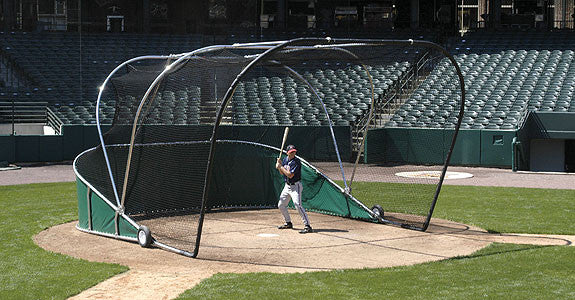I would like to add a little something to the question I had yesterday: do you think it's valuable to have outside instruction at facilities, personal instructors, coaching our individual level. The answer that question in my opinion and my opinion is is my opinion after were 50 years in the game. The answer is both yes and no. It's yes if the player really wants to go it's yes if the players really willing to listen it's yes only if the player is willing to do the work outside of instruction. There's no magic formula a player that can hit the ball cannot go to an instructor or to a camp or to the facility one or two times then all of a sudden get the ability to hit the ball. What all that instruction does is allow him to get the knowledge so that he can work on it correctly outside. There is a reason players are better when they get the time from their parents, brothers sisters, friends all those things that cause them to do the skill over and over.
Don't get me wrong if it's enjoyable and the kid wants to do it is an activity then perfect if work for you and the player then do it and enjoy it. But it won't make any difference if all you do is go once a week and never do anything outside of it. Nothing is accomplished one day a week has to be done consistently and often.
The saying is true we have to enjoy the journey because the destination is hard to get to and a long ways off.
Coach Arnald Swift

We have this come up on a regular basis especially the seasons quit and teams have players leave and need to add to players or trying to establish a new team regardless if it's for a local league or travel ball. There are huge areas and questions to be answered but I would like to address one from the standpoint that I am the assessor and trying to establish what players have the ability, understanding, knowledge and be a player that I want to have on my team.
First and foremost during tryouts we want everybody to do the same thing catch the same flyball of a machine preferably so it's always the same, throw the ball from the same spot, normally from shortstop on a easy rolled ball by the coach so there's no fielding really involved just getting it picked up so I can see his arm and his accuracy. Then again using the machine have the ball hit to the player again at shortstop is normal seeing how he fields the ball-- hit the ball off of tea and time in contact to touching first base with a stopwatch to assess speed- and finally using a machine so easy strikes so that you can see the bat swing, mechanics of the swing, and how hard he hits it.
Now I realize I've used the word machine a lot of times and the reason we do that is because everything will be consistent but if you don't have a machine make sure you use the same person trying to replicate the same throw, , by the way I always thought don't use the bat you can't be consistent there, so that every player has an equal opportunity.
Then hear something that I look at that normally people don't give enough credit for I want to see how the kid reacts when he fails when he succeeds I'd like to know his attitude and reactions when he throws one over the first baseman's head or drops the flyball. Does he pout kicked the ground and carry-on orders and get back and say let's do it again by his actions not his words by his actions not his words. Then if you have a chance make sure your recruiting parents as well as players. these two are very difficult because they're not quantifiable they just have to be how you feel about the situation and what your instincts tell you but there worthwhile making notes of as well as the mathematical/numerical values you have on a players skills-- running--hitting--Fielding-throwing- catching.
It will be worth your time to be able to have these numbers and facts when you tell a kid yes you're on the team or worse when you have to tell a kid/parents that no were going to pass and not use you this year.
Good luck and doing one of the toughest things around getting a team with players that you can coach and get good performance out of while making it a worthwhile experience for everybody.
Coach Arnald Swift BATCO
Player going into high school, prep school, team to play on, playing up, parents evaluation, coaches evaluation
Hi Coach,
Coaching up here in Northern California, Little League (10-12 year olds, Majors). The one thing I have the biggest problem with is kids pulling their heads as they swing and not keeping their eyes on the ball. I've tried a lot of home remedies, but nothing works consistently. Any hints?
Thanks,
Don:
=================================================
You are correct this is a problem and you're correct until he can once to stay in and look at the ball while he swings it will not happen.
The first and foremost thing is that they have to get in the right sequence: have to step and get their foot on the ground, rotate their hips,then bring the bat through the strike zone hands first.
The best drill that I've found for this is a version of the soft toss drill. Get a screen (probably a pitcher L-screen) and have the batter stand at the plate (preferably in a cage) and soft toss directly at him both underhand and overhand just like your throwing pitches over the plate, using a screen to protect yourself. This will allow him to concentrate on the three steps and not worry about how hard he's going to hit it or if he's going to get it and he can keep his head down and see the ball all the way and even trying to see it come off the bat.
Hope this helps and if we can help you more with getting DVDs or conversation please just let me know.
Coach Arnald Swift
thoughts on breaking pitches, when should players start opinions, age breaking pitches are appropriate, general thoughts on age and breaking pitches
how do we get the boys ready to play or practice. Frame of mind, Before, drills, attitude, organization,
Parents, as your boy or girl gets better and progresses into the sport of baseball and/or softball they're going to be faced with tryouts. Where a coach or set of coaches trying to determine if he or she can play on their team regardless of whether it's elite travel or just regular league many times were faced with the try out. If the tryouts are well-run you should be able to see comparisons between your player and the other players and how they can hit, run, throw, field, and at times how well they understand the game through situations.
All tryouts try to create measurable's so that they can validate their choices both to themselves and the parents. Many times parents don't see, in fact most always, their child/player in the same light as the coaches that are doing the evaluation. By measurable's we mean something that the player can do that we can physically and mathematically major.
Typically these are: running speed how fast over the distance from home plate to second base, arm speed how fast does he throw the ball from the pitcher's mound and from the shortstop position to first base -- this is measured with radar almost always. On the batting aspects New technology is allowing for a measurable on the bat speed, bat angle, exit speed of the ball off the bat all these things are done using a machine or a batting T so that little or no difference between one boy/girl to the other.. Something we always try to avoid is the human element in a tryout,
you should note as a parent or try out administrator that there needs to be opinion place for somebody that knows the game and knows athletes to be able to comment on athletic ability, quickness, correctness of throwing motion, correctness of hitting technique,, awareness of the situations when placed into the field or at the bat and a situation is simulated.
But that human element does enter into when we determine if the player has a good attitude, hustle, pays attention, will be a good team player and that the parents and the player understood what they're trying out for and most the time with the costs going to be both in time and in money.
All these are things that you as a parent and as a coach trying out need to consider, this article is a long ways from inclusive but I would hope it gives you some thoughts of what you're going to be faced with or what you have to do in tryouts.
Coach Arnald Swift
Baseball tip Some Coaches Notes On Baserunning
I wish I knew why so little time is spent on baserunning in practice.
Maybe there’s just so much to do coaches are less comfortable with their knowledge, and as I said, I don’t know.
But what if it were true that you could actually steal a few extra victories in a season? Would you feel it was important enough to rethink it? I hope, yes. But where would you start...and how would you implement it?
Some quick thoughts:
Decide how much time you would dedicate, then DO IT. Now they can get better, quicker and it becomes a habit for the entire team.,Explain to the team about a new weapon they will be using: baserunning! Let players know that all players can help, not just Johnny Fast-Guy. Be prepared for your 2nd practice drills to go 20-30% better than the 1st! Be prepared to get excited (as will your players) as this happens.
Make it a part of your practice routine. You’ll even come up with more ideas that I PROMISE you’ll “get” as your interest peaks!.
Thoughts on each base:
2nd Base
Second base is called scoring position for a reason.
It takes one hit to score most runners from here...and has the added bonus of eliminating the force or double play and pressures the defense and your opposing coaches further.
3rd Base
There are 9 different ways to score from 3rd base! Can you name them?
Wow! You just have to attack this base and get yourself there. It puts so much pressure on opposing coaches, pitchers, catchers and infielders that you could steal an extra game or three over the course of a season!
This is a little bit out of my normality of posting but had a situation that I thought would be worthwhile talking about. It's one is old as coaching and is always going to come up there is no true solution. However I do believe there's one question that we can ask and press the person complaining for their answer.
I help coach my son's team and is a 10 under team, kind of an ordinary team the place in a recreational league in our town but we try to do the best we can and make the boys better because we do know what shape the ball is in of got some legitimate background in coaching and baseball. Which is a nice way to say we pretty much know what were doing.
After a game last week the one parent that doesn't want to coach but doesn't like the way were doing came to us and said he just had to get off his chest. What he had to talk about was that he thinks the coaches lost that game. (Not sure how we gave up the 10 hits, five errors in eight runs while only scoring two runs but it was Coaches fault). then of course after he talked a little bit the real truth came out that he was upset that his boy who happens to be left-handed and not that fast had to play right field sum as well as first base. Now most the time he plays first base but in this particular game he pitched and played right field and didn't play first base. He immediately compared it to my sons boy, and the other coaches boy who play second in short and that's the only position they played.. You
his statement was at the end of all this complaining that he was grooming his boy to be a first baseman and that we were doing a misjustices to his boy by not playing him at first base all the time where he wants him to play as that's going to be his position and that's what were grooming there's that word again him for.
Both the coaches listened very patiently and really didn't respond,, really not all they just said thank you and will consider everything you said. Now as the coach of 50+ years that just helps a practice and doesn't have anything really to say about the lineup I only help with the skills. I believe they handle it very well as he left Calm but I'm sure is not satisfied because there were no guarantees made about how where his boy were going to play.
Now this is the real reason I write this any coach that listens to any parent, fan, and it's having a semi-rational discussion about what you're not doing should always ask them this final question-- WHAT WOULD YOU HAVE US DO AND WHAT KIDS SHOULD WE LEAVE OUT. If he can't answer that what he would do, and how he would handle it then the conversation really over.
I knew the winningest basketball coach in college basketball, he coach for North Dakota State Don Meyers, and he was speaking at a clinic one time and said I will talk to anybody about anything I want the best for my players except I will talk to anybody especially parents about playing time. My answer is always the same tell me what player you don't think should be playing, and I will get you his phone number so you can call his parents and discuss it with them. Granted it was a non-realistic answer but it certainly brings forward very good point very clear that not getting enough time there has to be a player is getting too much time so who's decision should that be --THE COACH'S.
That is my 2 cents and opinion.
Coach Arnald Swift
I've been reading a lot about travel baseball here recently and how much time and effort spent the dedicated to it. For my own personal experience my grandson has now devoted since December until probably September/October to baseball. They been having practice once or twice a week since after Christmas and as of today March 12th 2015 they've only played one game both of those in a practice tournament.
now that you have the picture the question is is that good for him, as a coach 34 years at the high school level in a coach for well over 40 years I question it. Every study you read there has been much of it recently indicates that players become better athletes, begun better people, and are just better off all the way around in their life if they have diversity. Now I'm not saying there's not a time to start to dedicate to single sport that time is not when you're young by my definition young means actually under 18, though I'm sure somebody will argue there but I believe were kidding ourselves if we think we can make players starting at 8 or 9 years old and do nothing but a single sport. I would be willing to bet a lot of money that for every one athlete that goes on it becomes very good in that single sport they dedicated all their time to there are probably close to 100 that quit or find another sport.
So I'm going to offer this piece of advice you know you're doing your right by your player when you do what the player asks, there's the keyword what the player asks not what you thinks good not what you thinks should be done but what the player wants to do. Now don't get me wrong once you start doing something do it right, and even do a hard but please don't make your player become dedicated to a single sport at a very early age or even up to high school. The odds of them becoming a better person are enormous compared the odds of them becoming a professional player. Think about it you and your kids will be happier if they diversify and enjoy and have fun.
Coach Arnald Swift's-- 69 years a dad 45 years umpire and 50 years as a coach











